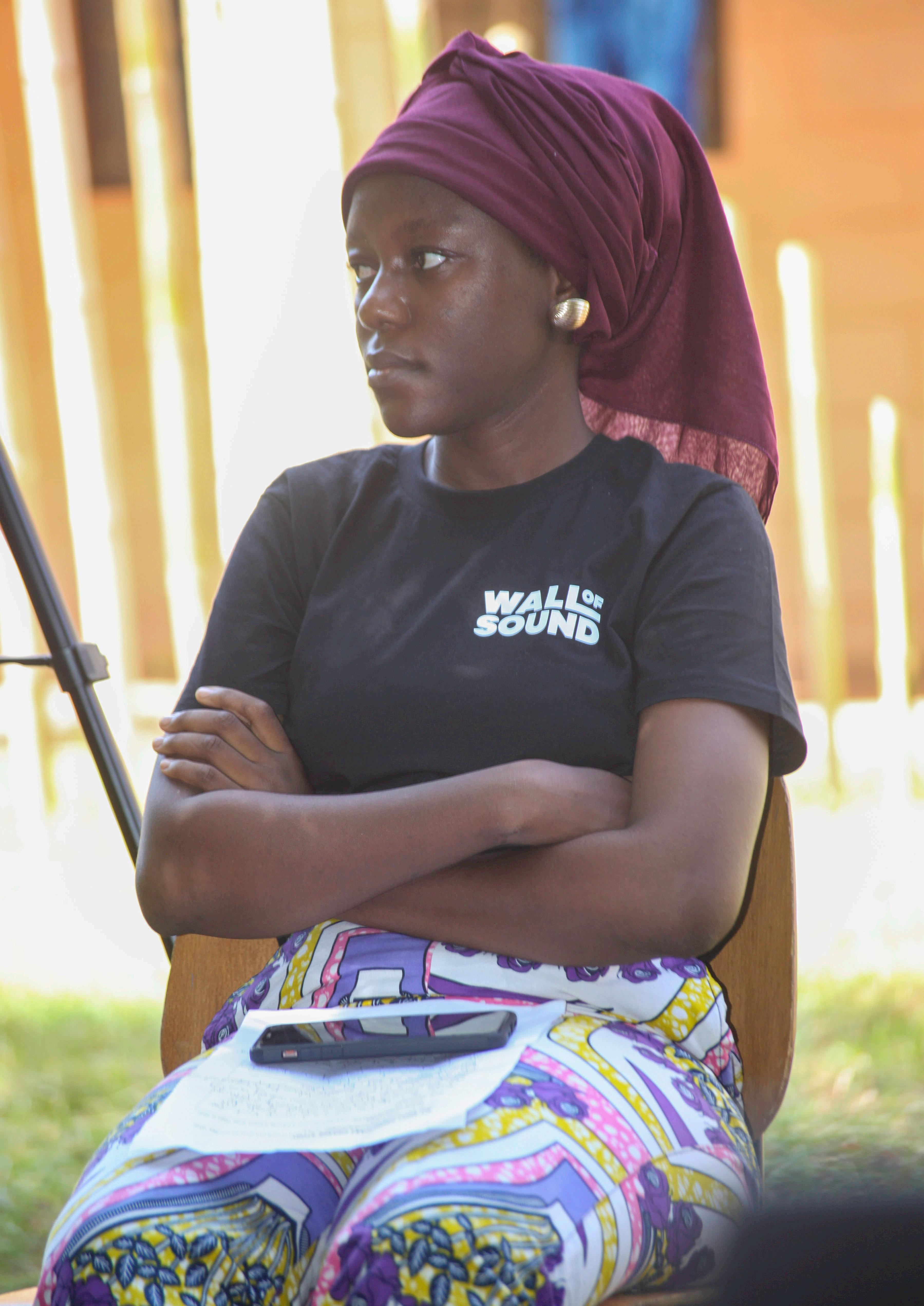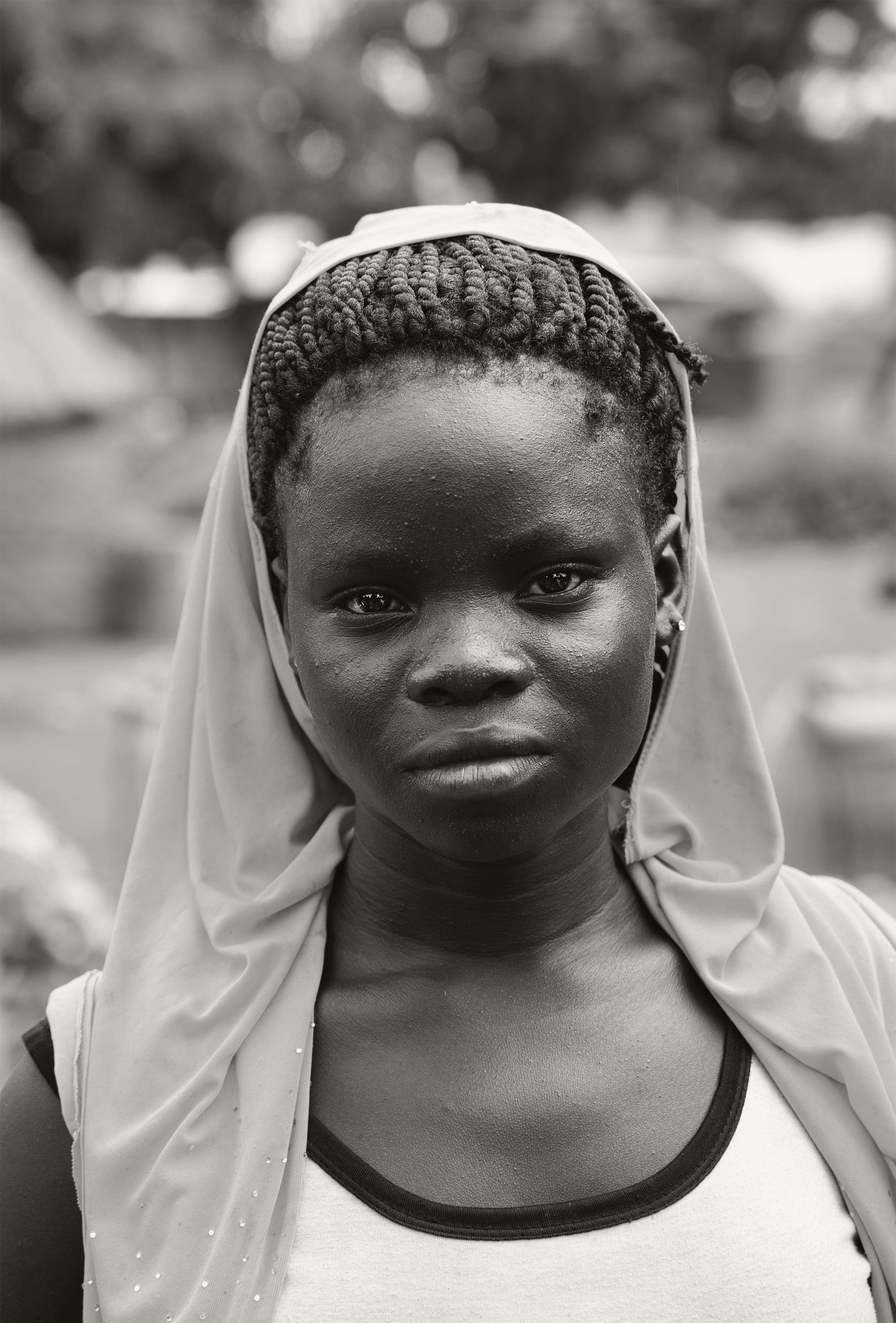
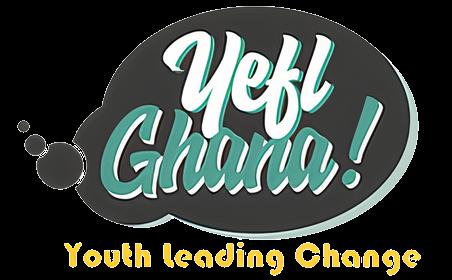



// 2029

Youth Empowerment for Life (YEFL Ghana) is a vibrant, youthfocused, and youth-led organization committed to empowering young people economically, socially, and politically to lead the change they envision for their communities.
Guided by the core pillars of economic empowerment, social empowerment, and political empowerment, YEFL Ghana’s approach ensures that young people are not only beneficiaries of development but active drivers of it.
This five-year strategic plan (20252030) builds on YEFL Ghana’s rich history of youth-led initiatives and introduces new strategies to amplify youth voices, foster economic resilience, and enhance youth participation in governance and decision-making processes.
Recognizing that young people constitute over 38% of Ghana’s population, this strategy is designed to address pressing challenges such as youth unemployment, gender inequality, and climate vulnerability while harnessing the potential of youth as agents of sustainable development.
Aligned with national frameworks and global standards such as the Sustainable Development Goals (SDGs) and the African Youth Charter this strategic plan outlines six key strategic focus areas. Through innovative programming, advocacy, and strategic partnerships, YEFL Ghana seeks to equip young people with the skills, platforms, information, leadership and opportunities they need to drive transformative change within their communities and society.
Youth Empowerment for Life
(YEFL Ghana) is a vibrant, youthled organization dedicated to empowering young people in Northern Ghana and beyond. Established in 2010 in Tamale, YEFL Ghana has grown from a grassroots youth association into a recognized membership-based organization, making significant contributions at local, national, and international levels through advocacy, networking, and youth-driven initiatives.
Over the past 15 years, YEFL Ghana has built extensive program capacity by implementing cross-sectoral programs in collaboration with national and international development partners such as Oxfam, SNV, Ghana Friends/Danida, and CARE, as well as government institutions. This experience has equipped YEFL Ghana with robust operational guidelines and policies, including safeguarding protocols, and has seen the organization successfully pass rigorous due diligence processes.
YEFL Ghana’s work is grounded in well-documented methodologies and co-created models developed in partnership with research
institutions and youth stakeholders. Notable examples include the Entrepreneurship Bootcamp and Youth Speak Up models, which have become cornerstones of youth empowerment efforts in the region.
At the national level, YEFL Ghana has played a key role in shaping youth policy, including contributing to the National Youth Policy in collaboration with the Ministry of Youth and Sports and the National Youth Authority. Internationally, YEFL Ghana has provided leadership as both a chair and member of the African Youth Panel, influencing youth development agendas across the continent.
As YEFL Ghana embarks on its 5-year strategic plan (2025-2030), the organization remains committed to fostering youth empowerment amidst emerging challenges such as youth climate migration. Guided by its youth-led board, YEFL Ghana continuously adapts its strategies to ensure that young people are not just beneficiaries, but active agents of change driving sustainable development in Ghana and beyond.

OUR MISSION
Our mission is to“Create young change makers, who are committed to secure strong and sustainable futures for themselves and their society”.
OUR VISION
YEFL Ghana’s vision is “Youth Leading Change!”
OUR VALUES
At YEFL, we are guided by the following values and guiding principles:
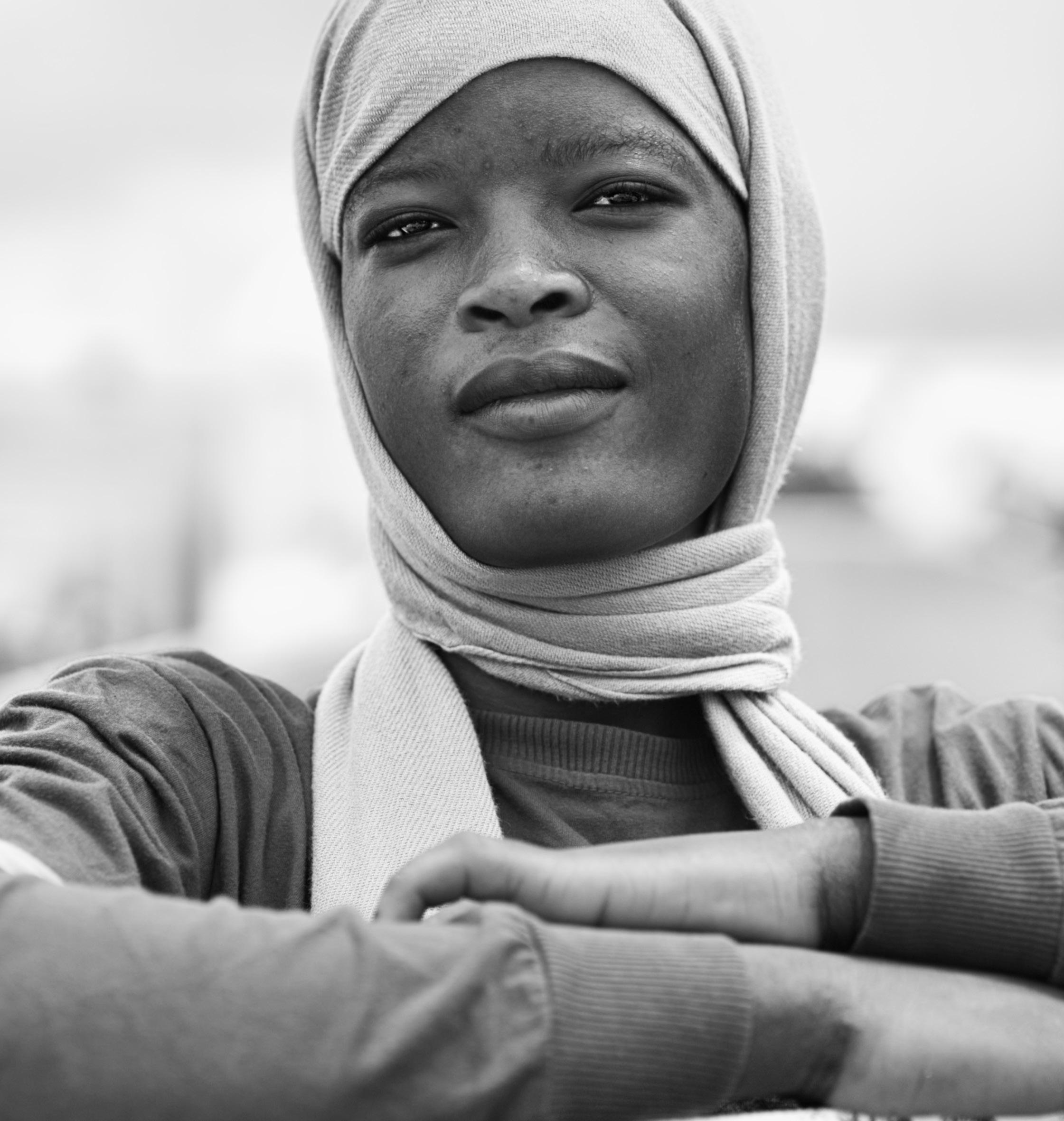
Counselling, Mentoringand Coachingfor Capabilities
Advocacy and Civic Engagements
Gender Equality and Value System LearningByDoing
Participate - Do Not Spectate
Volunteerism
Networking and Partnerships
Globally, our YEFL youth strategy aligns itself with the 2030 Agenda for Sustainable Development and seeks to contribute to the achievement of the SDGs. The goals’ focus on inclusive development that leaves no one behind aligns with YEFL Ghana’s mission. Overall, YEFL Ghana contributes to goals 1, 3, 4, 5, 10, 16 and 17 which is further elaborated under our strategic focus areas in section 7.
The strategy is aligned with national and international Youth Policy frameworks such as the Ghana National Youth Policy (2022), the Local Government Act, the Youth Employment Agency Act, the African Youth Charter, National Youth
Authority Act, National Budget Policy Statements, the Ghana Beyond Aid Charter, the National Entrepreneurship Policy, the AU Agenda 2063, Action Plan of the Office of the AU Youth Envoy, the World Programme of Action for Youth (WPAY), the Sustainable Development Goals (SDGs), the Global Initiative on Decent Jobs for Youth, the Global Strategy for Women’s, Children and Adolescent’s Health, the National Gender Policy (2015), the Agenda 2030 and the Education 2030 Framework for Action.
YEFL will continue to monitor the context of the policy frameworks as it evolves and make sure our interventions align with the respective frameworks.
At YEFL, we are committed to protecting the fundamental human rights of the youth, occasioning investigations when and where there are violations through established mechanisms, policies and practices.
This will be done to guarantee a safe and enabling environment for youth active representation in the social, economic and political change processes. Our safeguarding policy is available on our website www.yeflghana.org.
YEFL Ghana is a youth-led organization committed to promoting gender equality and social inclusion across all its programs and interventions.
Over the next five years, YEFL Ghana will continue to integrate genderresponsive and transformative approaches to ensure that young people of all genders have equal opportunities. YEFL seeks to actively contribute to SDG 5 on Gender Equality, where in addition to empowering youth, YEFLs work also propels women and girls forward in alignment with this goal of achieving gender equality by addressing instances of gender injustice and discrimination while empowering women.
YEFL Ghana’s gender work is anchored in creating inclusive spaces for young people, particularly women and girls, to participate actively in economic, social, and political spheres. Through initiatives such as Regional Youth Networks and Girls Caucuses, YEFL empowers young women and marginalized groups to take up leadership roles and pursue economic opportunities without discrimination.
The organization has successfully implemented gender-sensitive programs like Entrepreneurship bootcamp training sessions, which have supported young women to establish and scale their businesses. These efforts reflect YEFL’s commitment to economic empowerment, gender parity in governance, and equal access to resources.
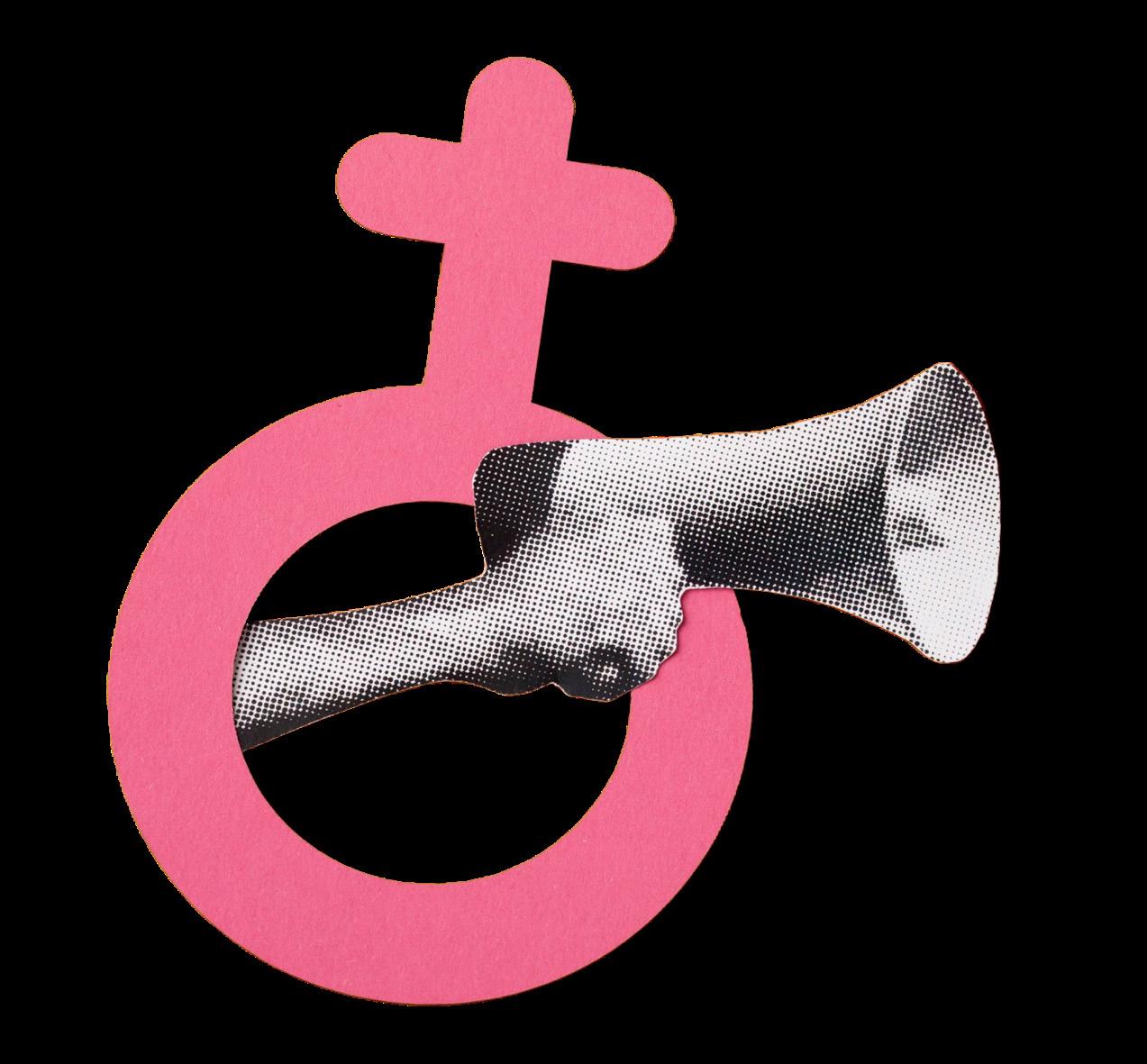
The Girls’ Caucuses concept, developed by YEFL-Ghana, is a transformative initiative implemented under the CLEAR project to empower young women across various districts and communities. Designed as a safe space, the Girls’ Caucuses provide young women with the platform to voice their concerns, share experiences, and build their capacity in advocacy. Through mentorship, peer learning, and leadership training, the initiative equips them with the skills to influence decisions that directly impact their lives, particularly in areas such as education, gender equality, economic empowerment, policy reforms, and overcoming cultural barriers. By fostering collective action, the Girls’ Caucuses continue to drive meaningful change, ensuring that young women are actively engaged in shaping policies and solutions that address issues of poverty, discrimination, and social inclusion.
YEFL Ghana seeks to strengthen its gender equality agenda by:
• Embedding gender objectives in all programs: Every project will include clear gender targets, ensuring that women, girls, and marginalized youth are empowered.
• Building staff and stakeholder capacity: YEFL will invest in training its staff and partners on gender-responsive practices, moving beyond traditional gender sensitivity to transformative gender programming.
• Enhancing economic empowerment for young women: YEFL will expand its entrepreneurship programs, encouraging young women to venture into traditionally male-dominated sectors and fostering an inclusive entrepreneurial ecosystem.
• Promoting equal participation in governance: The organization will continue to support young women and marginalized groups to take up leadership roles in community governance, youth parliaments, and policy advocacy platforms.
• Monitoring and evaluating gender impact: YEFL Ghana will adopt a MEAL (Monitoring, Evaluation, Accountability, and Learning) approach, utilizing sexdisaggregated data to track progress and ensure that gender equality is included in its interventions.
• Responding to emerging gender challenges: The organization will remain agile in addressing evolving gender issues such as gender-based violence, period poverty, and child marriage through evidence-based advocacy and community engagement.YEFL Ghana’s work in gender equality will be operationalized through its six strategic focus areas, ensuring that young people of all genders have the tools, platforms, and opportunities to shape their futures and contribute to national development.
GENDER UNAWARE
Programming that ignores or is completely unaware of the economic/ social/political roles, rights, entitlements, responsibilities, obligations, and power relations associated and the dynamics between and amongst people of all genders.
GENDER NEUTRAL
Programming that works with gender norms. Reinforcing or utilizing pre-existing gender inequitable structures, systems, and divisions in society relating to gender. Does not consider how gender roles and relations can impede the achievement of programming outcomes, or how programming may negatively affect gender roles and relations.
GENDER SENSITIVE
Programming that adapts to gender norms. Works around existing gender differences and inequalities to ensure equitable allocation/services/ support aligned with the pre-existing gender differences, structures, systems, and power divisions in society. Aware of the effect of leveraging inequitable gender norms for the outcomes of programming.
GENDER RESPONSIVE
Programming that challenges inequitable gender norms. Responds to the different needs and constraints of individuals based on their gender and sexuality. Opens space for discussing, challenging, and engaging with inequitable gender structures, systems, divisions, and power relations. Provides the opportunity for participants to question, experiment and challenge gender inequities.
GENDER TRANSFORMATIVE
An approach that seeks to fundamentally transform relations, structures, and systems that sustain and perpetuate gender inequality. This approach requires: 1) critically examining gender roles, norms, power dynamics, and inequalities, 2) recognizing and strengthening positive norms that support gender equality and an enabling environment, and 3) transforming underlying power dynamics, social structures, policies, and broadly held social norms that affect women and girls, men and boys inequalities.

For over 14 years, YEFL-Ghana has remained steadfast in its commitment to youth-led development, embedding Local Leadership at the core of our organizational model. Long before Local Leadership gained global recognition, we actively championed a youth-driven approach, ensuring that young people take ownership of their growth, decisions, and community impact.
Our model is built on learning-by-doing and peer-to-peer leadership, where youth independently initiate, lead, and execute programs aligned with their passions and community needs. This organic approach fosters self-reliance, accountability, and sustainable impact, positioning young people as both decision-makers and change agents.
A key differentiator of YEFL-Ghana is our governance structure—our Board is elected entirely by young people, ensuring that leadership and decisionmaking remain firmly in the hands of the youth. This reinforces our commitment to youth agency and inclusive representation at the highest levels of organizational strategy. Looking ahead, YEFL-Ghana is embarking on a five-year strategic roadmap focused on enhancing our technical and institutional capacities. Our goal is to strengthen governance, operational efficiency, and programmatic excellence, making YEFL-Ghana the partner of choice for stakeholders committed to sustainable youth development. Through this strategy, we aim to solidify our position as a leading youth-led organization and a model for localized, impact-driven leadership in Ghana and beyond.
Over the next five years, YEFL-Ghana will prioritize intentional and strategic partnerships that enhance our impact and sustainability. We will actively engage with private sector actors, private foundations, media houses, and international organizations that share our vision and commitment to youth-led development.
By fostering mutually beneficial collaborations, we aim to mobilize resources, leverage expertise, and amplify our collective influence to drive meaningful change. These partnerships will be aligned with our strategic focus, ensuring that all engagements contribute to our overarching goal of empowering young people as leaders and decision-makers in their communities.
YEFL-Ghana is committed to building a strong, resilient, and well-networked organization that serves as a trusted partner of choice for stakeholders dedicated to sustainable youth development.
YEFL’s established partnerships with local and international CSOs and NGOS is in line with the Global partnerships for sustainable development and local leadership principles.
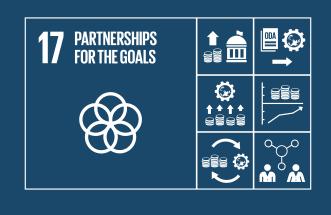
YEFL Ghana’s communication framework guides the organizations’ external and internal communication. It is outlined and operationalized through YEFL Ghana’s Communication Strategy. The Communication Strategy is aligned with the theory of change, the M&E framework, partnership engagement strategy and other relevant organizational manuals to ensure strategic, holistic and integrated communication of YEFL-Ghana’s vision and mission.
At the impact and outcome levels, communication will be used to amplify constituents’ views, provide opportunities for constituents to have their voices heard in local and national policy dialogues; and support learning by capturing and sharing best practice and replicable models, as well as challenges.
To advance our work at all levels, we collaborate with media and leverage strategic partnerships, by establishing strong relationships with journalists, radio/TV stations to amplify our advocacy efforts and project impact. At the national and regional levels, we engage in press briefings/releases, media campaigns, and TV/radio discussions to shape public discourse.
At the community level, we utilize local radio, participatory storytelling, and community journalism to ensure grassroots voices are heard. Additionally, we copublish statements with partners, provide media training for beneficiaries, and create compelling multimedia content to share impact. These efforts enhance our visibility, drive positive change, and strengthen stakeholder engagement.
1. Promote YEFL-Ghana and ensure transparent messaging and a clear organization identity which enables stakeholders to engage with the purpose of the organization.
2. Encourage and amplify the voice of citizens, especially the voice of young people women and people with disabilities, to local and national decision makers and service providers.
3. Communicate the results, added value and impact of YEFL-Ghana to donors.
4. Ensure transparent communications at every stage of our work.
5. Increase public awareness and understanding of YEFL-Ghana’s role in development by publicizing its contribution to change, successes and approach.
6. Establish strong relationships with media outlets and journalists to enhance visibility, influence public discourse, advance advocacy efforts and effectively communicate key messages to target audiences.
7. Explore how AI and tech can support YEFL Ghana organizational systems and improve youth programming.
YEFL Ghana is a key stakeholder in youth development and an active advocate for policies that promote youth empowerment, inclusion, and social equality at all levels of governance.
Over the next five years, YEFL Ghana will strengthen its role in policy influencing by focusing on clear, evidence-based advocacy priorities that reflect the needs and aspirations of Ghana’s youth, particularly those in rural and underserved communities.
YEFL Ghana will focus on influencing policies that:
• Increase national budget allocations for youth employment and entrepreneurship programs.
• Ensures transparent allocation and distribution of the 5% allocated for youth development in the District Assembly Common Fund.
• Promote youth representation in local governance
• Promotes transparency and accountability in the National Youth Policy and programs.
• Address climate vulnerabilities by ensuring youth participation in the development and implementation of national climate policies.
• Strengthen frameworks to protect youth rights, including gender equality.
YEFL Ghana will adopt a multi-faceted, evidence-based approach to policy influencing by:
• Conducting research and data collection to provide credible evidence for policy recommendations, including the use of youth-centered surveys, focus groups, and case studies.
• Building coalitions and networks with other youth-led organizations, civil society groups, and development partners to amplify youth voices and advocate for collective policy goals.
• Organizing policy dialogues and forums that bring together youth, policymakers, and stakeholders to discuss pressing youth issues and co-create solutions.
• Launching youth-led advocacy campaigns that highlight key policy issues through media engagement, social media advocacy, and public demonstrations.
• Providing policy training and mentorship for youth leaders and youth organizations to equip them with the skills and tools needed for effective policy engagement and advocacy.
YEFL Ghana will institutionalize the Annual Youth Day as a platform for assessing policy performance and advocating actionable reforms.
By actively engaging state actors like the Ministry of Youth Development, the National Youth Authority, and District Assemblies, YEFL Ghana will ensure youth perspectives shape national policies. Additionally, the organization will mobilize youth networks to lead grassroots campaigns, hold duty bearers accountable, and push for greater policy transparency.

By 2030, these efforts will increase youth representation in governance, ensure transparent budget allocations for youth programs, enhance youth participation in climate policy, and strengthen partnerships between youth organizations and state actors for co-creating youth-focused policies.


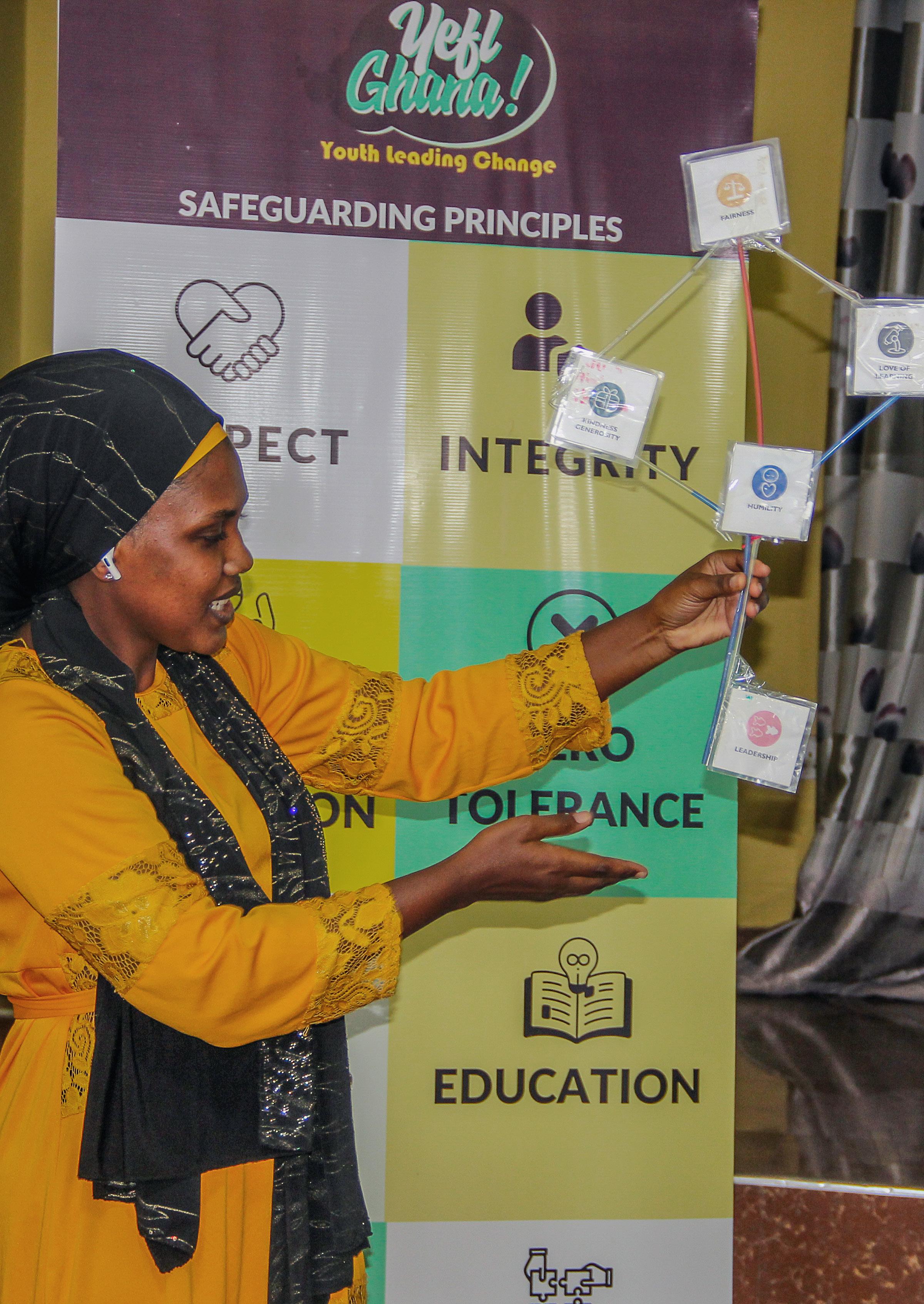
Our overall Youth Empowerment framework builds on three approaches that seeks to empower youth Socially, Economically and Politically to be active citizens who demand their rights, create jobs and engage in decision-making processes at local, regional, national and international level.
By employing the approaches to our programmatic work, we seek to create a critical mass of young people who are active citizens empowered with relevant skills, engages in diverse forms and connects to the appropriate institutions and platforms for their effective participation in decision making processes.

Empowerment
Youth-led networks are actively influencing local and national policies, with increased participation of young people, especially women and marginalized groups, in governance and community development processes.
This approach is the driving force of YEFL-Ghana’s existence and mandate. The approach focuses on mobilizing and organizing youth by facilitating their physical interaction that promotes learning by doing, peer to peer engagements, youth-led mobilization on issues, information sharing that activates active civic engagements between young people and their respective societies.
SDG 10: Reduced inequality within and among countries by empowering and promoting the social, economic and political inclusion of all, including persons with disabilities.

The target groups for social mobilization are literate and nonliterate youth, who are mobilized and trained to strengthen their capacities and governance structure to advocate for community development and participate in decision making at various levels in the society.
We realize this through the Regional Youth Networks, youth activism and movements as platforms for youth organizing for change!
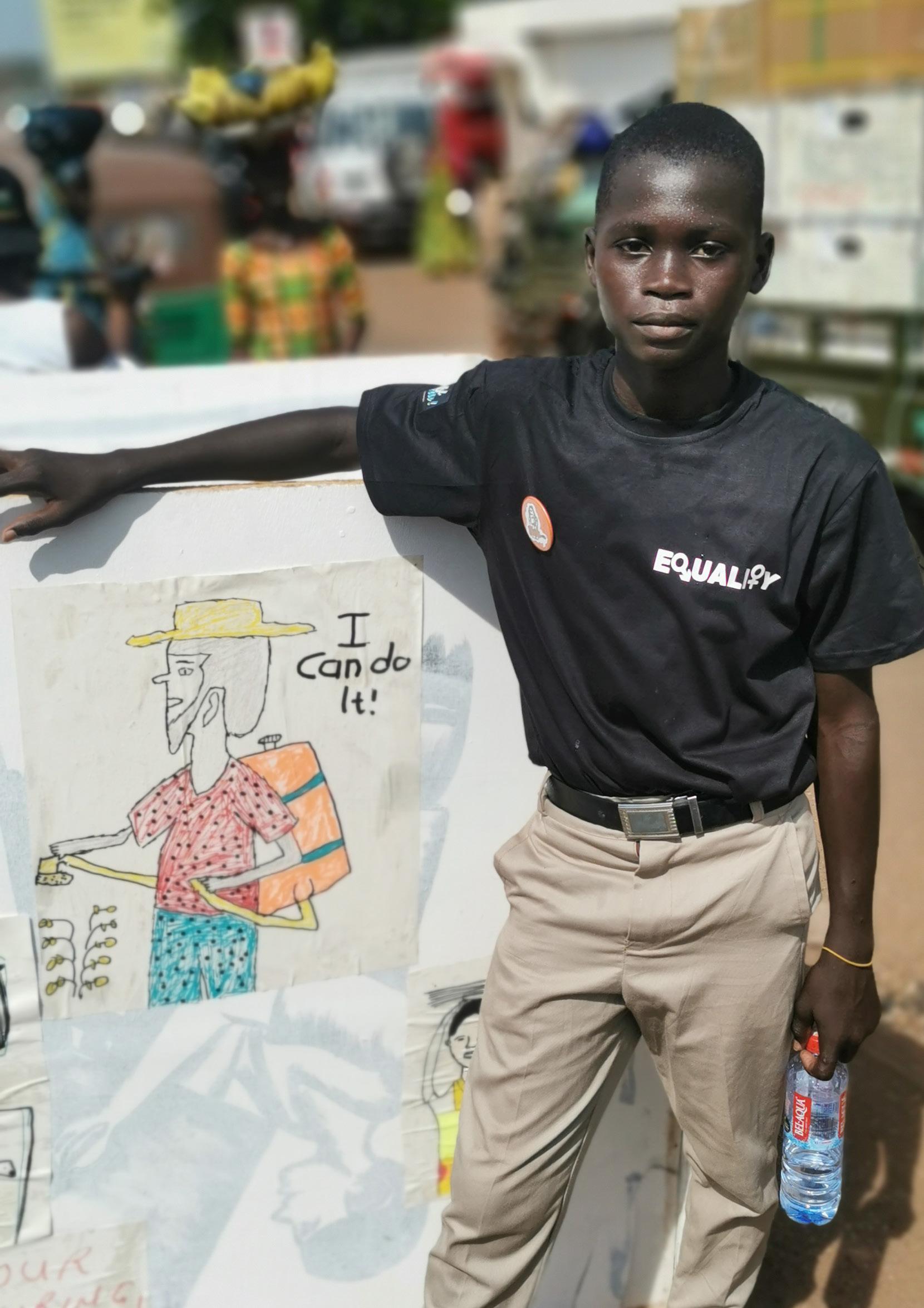
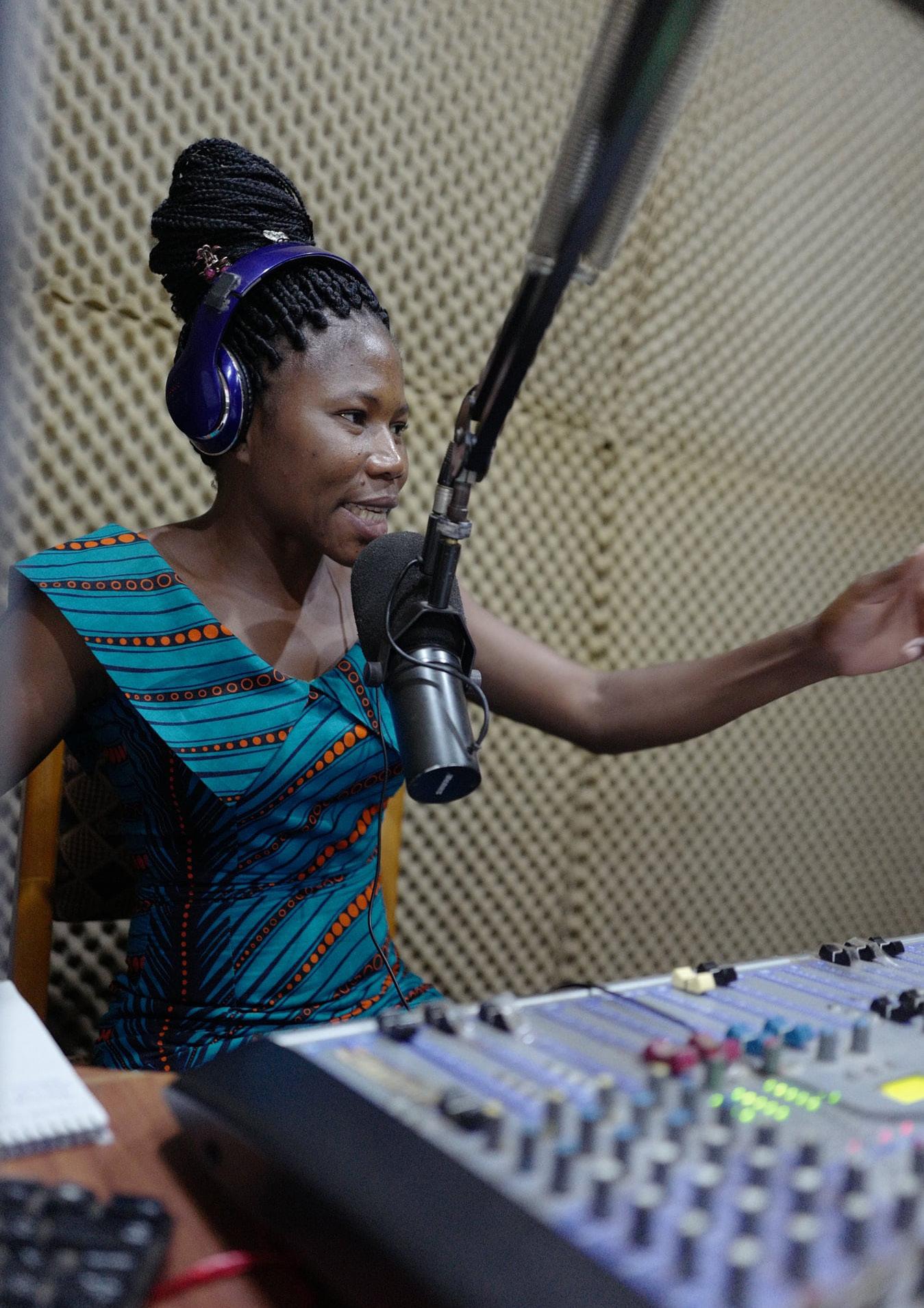
OBJECTIVE
Youth have enhanced capacity and platforms to engage in political processes, advocate for their rights, and hold duty bearers accountable through structured initiatives like Regional Youth Networks, Youth Parliaments and advocacy campaigns.
Young people are marginalized when it comes to political participation and activism and largely remain at the periphery of policy development and planning and even worse without a voice. However, there is an increasing demand from the youth who want to have direct engagement with local governance institutions for e.g. improved delivery of services in their respective communities.
The core of the political empowerment approach is to build youths’ capacities and provide links to opportunities that enhance young people’s ability to participate in decision-making processes, take up leadership roles, be accountable, as well as demand for accountability from duty bearers.
We ensure that young people are equipped with the right skills, information, tools, platforms, and capacity to participate and significantly influence the policy processes and demand for accountable and transparent governance from duty bearers from the local, regional, national and international levels.
We want to see youth as indispensable stakeholders who demand accountability from duty bearers and seen as exhibiting their civic responsibility to self and society are key in politically empowering youth. It has the objective of nurturing young people to have leadership capacity to take on leadership positions and participate in democratic processes influencing public policy decisions in a supportive youth development environment.
Young people, including women and persons with disabilities, have access to entrepreneurship training, financial resources, and mentorship, resulting in the establishment and sustainability of youth-led businesses and social enterprises.
Our economic empowerment approach seeks to facilitate the creation of self-employment among young people by igniting their entrepreneurial mindset, creating an enabling start-up environment and establishing linkages for the purposes of advocacy and to access and participate in existing economic opportunities.
Our goal is to develop supportive, sustainable and successful rural social enterprises to promote a one-stop entrepreneurship program by building capacities, creating economic opportunities and creating an enabling environment to inspire youth in rural and
underserved communities to startup businesses through the provisioning of entrepreneurial skills, business mentoring and advisory, coaching and networking, and marketing support services.
Already, there exist some spaces that foster innovation and entrepreneurship in the country, but these spaces do not reach a large number of rural-based youth
as they are only established in urban communities. This will be done through entrepreneurial skills training (entrepreneurship hubs), information sharing, establishing linkages to existing business support opportunities, networks and creating rural entrepreneurship hubs.
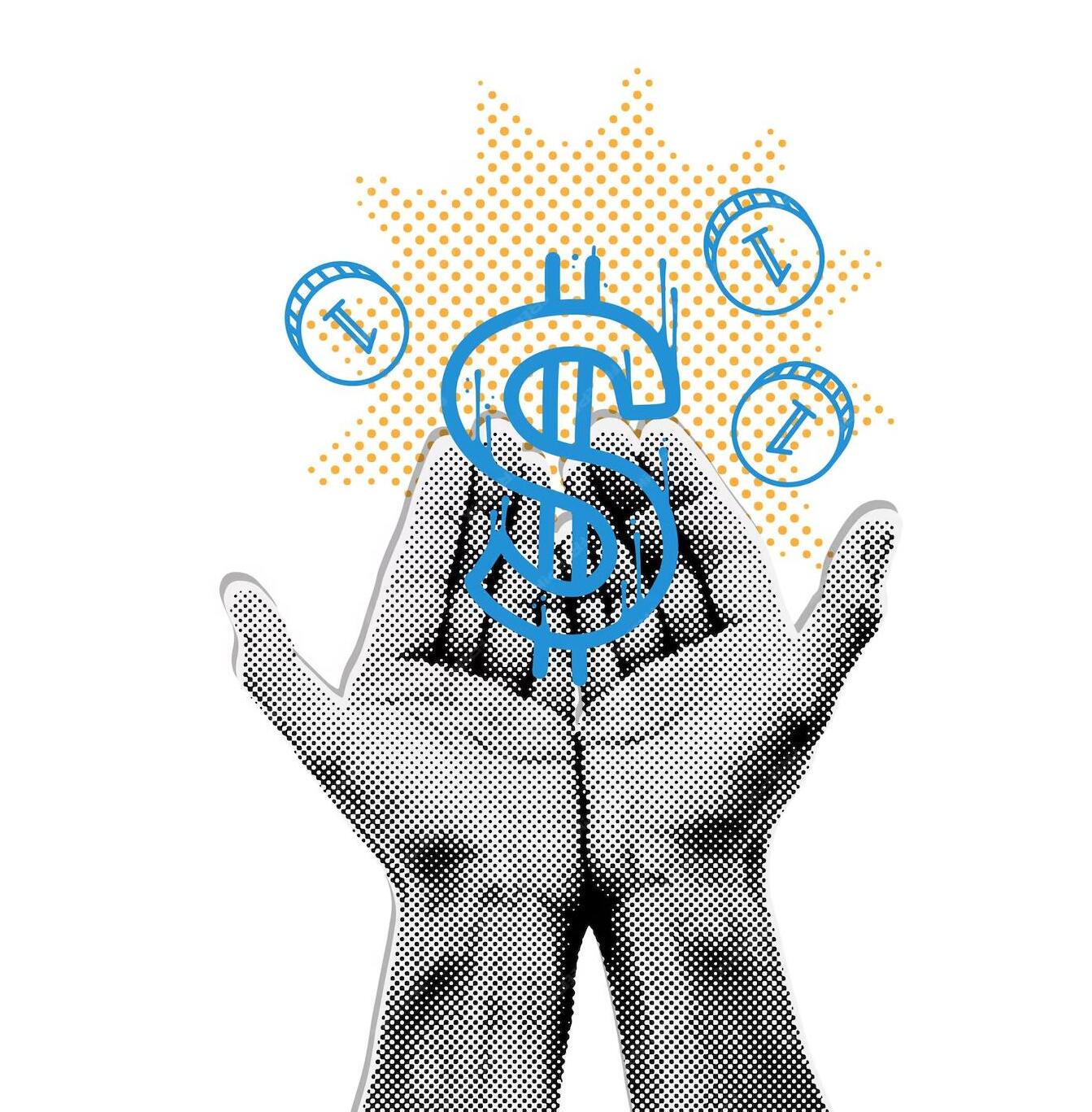
YEFL Ghana’s overall objective for our programmatic work is to:
Empower young people socially, economically, and politically to become active citizens who advocate for their rights, drive social change, create sustainable livelihoods, and contribute to decision-making processes at all levels.
The objective is operationalised through our 6 strategic focus areas.

YouthEntrepreneurship&Employment
YouthMobilizationforChange
Youth in Climate Awareness and Resilience Building
Youth Voice and Civic Engagements
Youth Preventing Violent Extremism, Social Cohesion and Peace
Arts, Cultural Exchange and Sports for Development
YEFL Ghana’s programmatic 5-year strategic plan is built around six key strategic focus areas that reflect our commitment to youth empowerment.
These focus areas guide our efforts to equip young people with the skills, opportunities, and platforms they need to drive social change, economic development, and political participation, while promoting inclusion, gender equality, and climate action.
Youth unemployment remains one of Ghana’s most pressing challenges, with a significant proportion of young people lacking access to decent work and sustainable livelihoods. Rural youth, in particular, face barriers such as limited access to capital, business training, and market opportunities.
The mismatch between skills acquired through formal education and the demands of the labour market further exacerbates the issue, leaving many young people underemployed or unemployed (Ampadu-Ameyawetal., 2020). According to the 2021 Population and Housing Census, one in five (19.7%) young people are unemployed in the country. The unemployment rate for
young people between 15 and 24 is even more severe (estimated at 32.8%; see Ghana Statistical Service,2021).
Unemployment is more prevalent among women (15.5%) compared to men (11.6%).
YEFL Ghana recognizes the urgent need to foster entrepreneurial mindsets and provide youth with the skills, resources, and support systems necessary to create and sustain their own businesses, thereby contributing to economic growth and reducing poverty.
Empower young people socially, economically, and politically to become active citizens who advocate for their rights, drive social change, create sustainable livelihoods, and contribute to decision-making processes at all levels.
We recognize the power of transforming the entrepreneurial mindsets of the youth and providing them with the means to facilitate job creation. Creating entrepreneurship opportunities is a cornerstone to us. We have trained young entrepreneurs for the past 8 years.
Based on the experience we developed a methodology for working with entrepreneurs with 85% success rate of youth owned and run businesses.
You can learn more and access all the materials here: www.yeflghana. org
SDG 8: Promote sustained, inclusive and sustainable economic growth, full and productive employment and decent work for all youth.
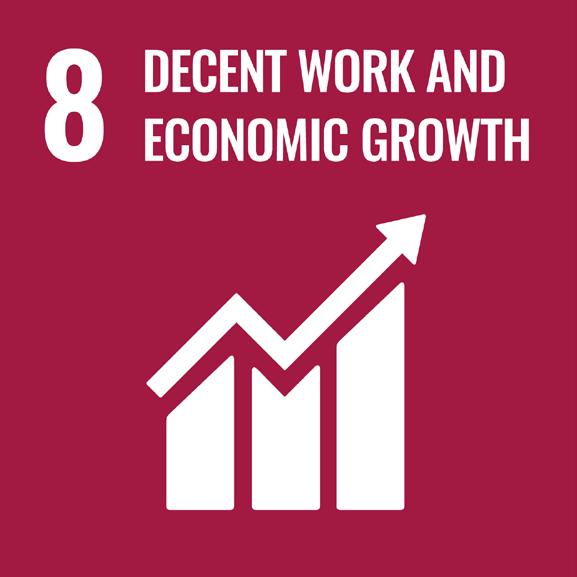
Through the support of young people by YEFL and its partners to acquire vocational and entrepreneurial and professional skills trainings for youth businesses the first SDG which speaks to ending poverty in all its forms is undertaken.
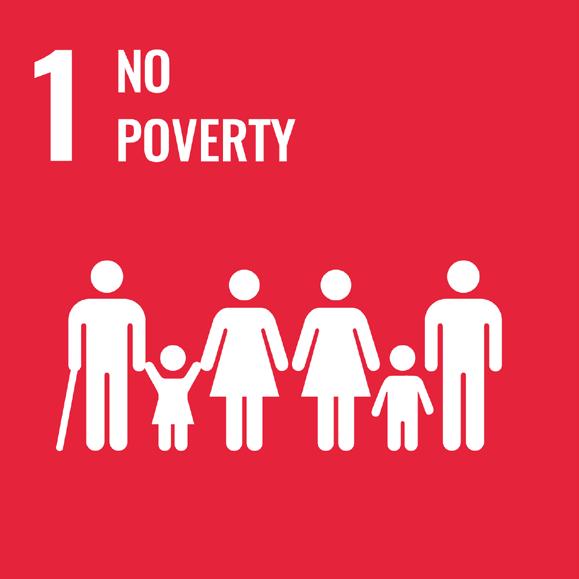
• Promote the culture of savings and access to finance through the establishment of the Village Savings and Loans Associations (VSLAs).
• Support youth enterprises by building capacities in entrepreneurship and agribusiness and facilitate the provision of business advisory services through the establishment of entrepreneurial hubs in rural districts building synergy with Ghana Enterprise Agency and other development partners.
• Collaborate with others to support youth acquire technical and vocational skills in market demand areas to address their unemployment challenges.
• Promote volunteerism and graduate internships opportunities for youth to enable them to transition from education and training to the job market.
• Promote the elimination of all forms of gender stereotypes in employment opportunities.

Magdalene, a young lady with skills in weaving found herself in our bootcamp training through the YOUTH-Life project with CRS. She learnt to weave smocks and the traditional cloth. Her business was viable but lacked one crucial component, which was funding. The project had had a revolving loan component, that supported some promising young entrepreneurs to start and maintain their businesses. With $78, Magdalene was able procure some basic items to kick start her business, which was the turning point for her business. Magdalene, is one of many youth who go through our bootcamp and come out with brilliant and feasible business ideas and a proactive mindset to start with little capital. Our bootcamp manual has achieved a 75% success rate of youth starting and maintaining their businesses.
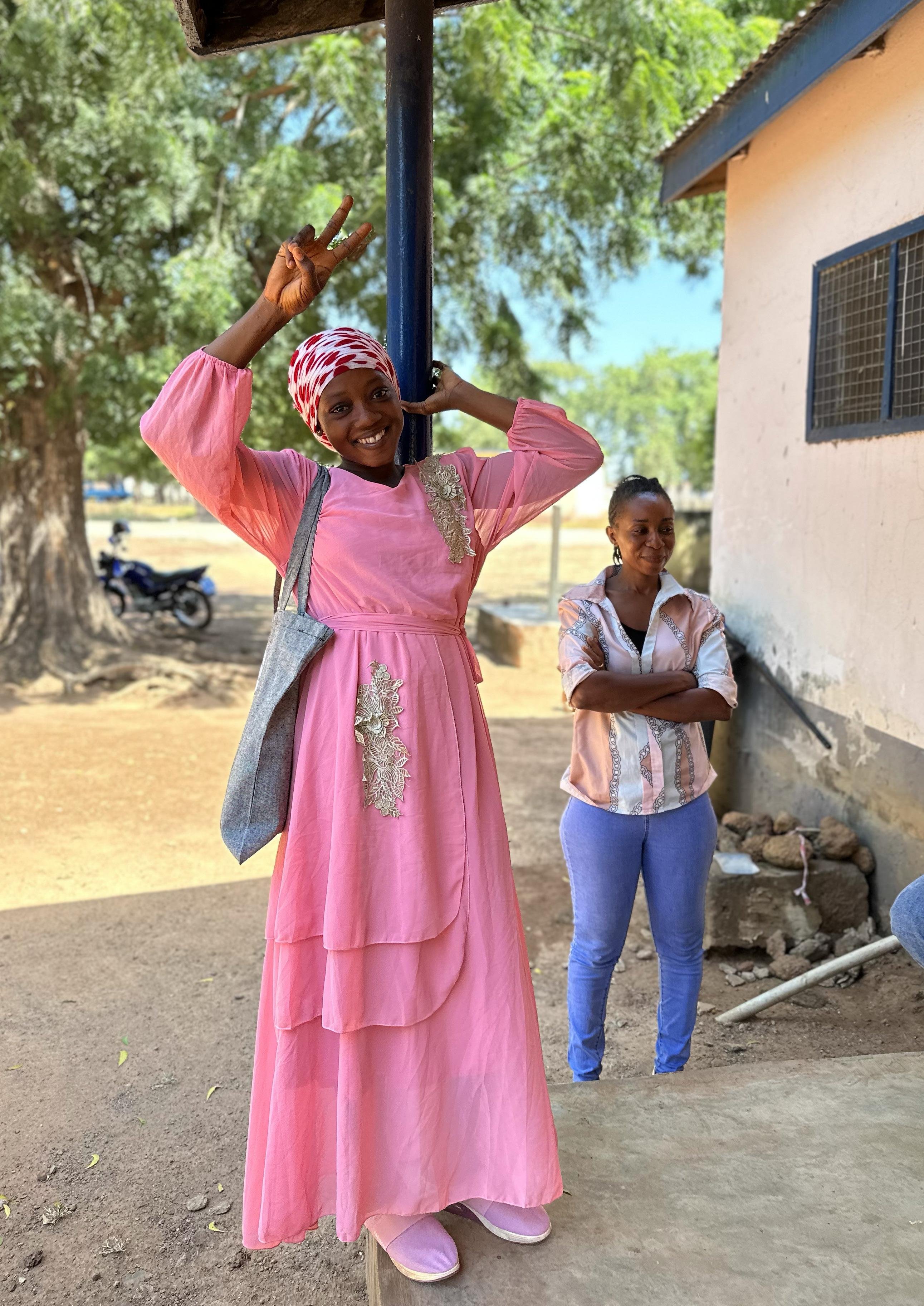
Young people in Ghana often feel disempowered and disconnected from the decision-making processes that affect their lives. Social, economic, and political structures frequently exclude youth, particularly those from marginalized and rural communities.
Additionally, many youths lack safe spaces to express themselves, learn, and organize. YEFL Ghana aims to address these challenges by creating platforms for youth mobilization, fostering civic engagement, and ensuring that young voices are heard and considered in policy development and implementation at all levels.
Strengthen youth voices and agency by creating inclusive spaces where young people can organize, collaborate, and advocate for their rights, while driving positive change within their communities and influencing national policies.
At YEFL-Ghana, we believe in safe spaces for effective youth mobilization and engagements. This we do through facilitating the establishment of Youth Centers and formation of district and Regional Youth Networks. By facilitating safe spaces, it brings youth of diverse backgrounds to meet, learn, share and
take actions by doing it themselves to influence change process in their respective communities and demand accountability from duty bearers.
YEFL-Ghana will facilitate youth to have space and platforms to promote civic engagement and advance their interests at all levels of their development.
• Facilitate the mobilization of youth for the formation of new or strengthening of existing district-level youth hubs to promote youth mobilization and engagement.
• Mobilize youth into regional networks such as the Northern Regional Youth Network to engage other youth and influence policies and national stakeholders.
• Support the convening of youth at all levels to hold dialogues that reflect their interests and build their self-confidence and train youth advocacy leaders and youth networks in advocacy, public speaking and movement building.
• Support the Youth Hubs to sustain youth mobilization, engagement and influencing by building their capacity in social enterprise.
• Facilitate young females to actively take up leadership roles in youth hubs, local governance structure and other relevant fora.
• Strengthen youth political leadership and participation by facilitating the establishment of Youth Parliaments and building the capacities of youth to influence decision-making. YEFL-Ghana will collaborate with the National Youth Authority to develop a national framework for the operations of Youth Parliaments in Ghana.
• Work with the National Youth Authority to ensure decentralization of youth offices and promote the implementation of the National Youth Policy tracking of funding allocation and utilization to the NYA.
In 2022, most streets in the Tamale Metropolis and Sagnarigu Municipality were without lights due to faulty street lights. This created avenues for criminal acts in specific communities with these faulty street lights. The Northern Regional Youth Networks conducted a research into the causes of the faulty lights, departments in charge, budgetary allocations and embarked on a campaign towards fixing the street lights. They were able to influence the municipal assemblies and had 700 street lights worked on. Amongst the 700, 400 were fixed and the remaining 300 newly installed. The network also dedicated their time to monitor the lights for a couple of weeks to ensure their effectiveness and give feedback to the assemblies.

Ghana’s youth are increasingly vulnerable to the adverse effects of climate change, including erratic rainfall patterns, rising temperatures, and environmental degradation, which threaten livelihoods, especially in agricultural communities, further leading to youth climate migration from the North.
Despite their vulnerability, young people are often left out of climate policy discussions and decisionmaking processes. YEFL Ghana recognizes the need to equip youth with adaptive skills, foster climate innovation, and ensure their active participation in shaping local and national climate resilience strategies.
Foster a generation of environmentally conscious youth who actively participate in climate resilience efforts, lead innovative local solutions, and contribute to national and global climate advocacy.
YEFL works to transform the youth to secure their futures and adapt to climate change by innovating local solutions that have global impact.
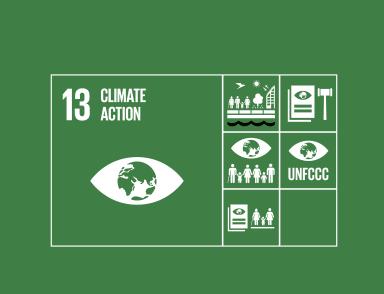
YEFL works to build the agencies of the youth to secure their futures as young farmers, climate reporters and environmental brigades, with the voice to speak up on climate agendas globally as climate reporters and able to adapt to climate change locally.
• Build the capacity of youth as Youth Activist Leaders through the Youth Climate Activist Program (CAP) in collaboration with Climate Development and Knowledge Network (CDKN) and the Green Africa Youth Organization (GAYO).
• Empower youth to become climate reporters with the capacity to tell their climate stories as it happens in their local communities by collaborating with local, national and international media, leveraging on traditional and new media to amplify their stories of impact on climate change.
• Support youth climate activists to address climate issues on local and regional level.
• Facilitate northern youth climate activists to engage and influence national and international climate policies and negotiations.
• Establish Eco-Entrepreneurship Program to support youth in starting green and sustainable businesses.

Youth Environmental Brigadiers (YEBs) collaborated with Climate reporters in a community called Kpegu to sensitize community members on the need to safeguard their community dam. Heavy rains had created deep pits around the dam making it easy for a spillage in much severe cases. The youth emphasized on the need to protect the dam as a climate action towards saving the environment. The community agreed and planned to plant trees around the dam to provide a tight grip around the dam. The YEBs and CRs have become trusted and knowledge tanks to their community on issues of environmental safety or climate change.
Access to information and platforms for self-expression remains limited for many young people in Ghana, particularly those in underserved communities. Youth often face challenges in articulating their concerns, engaging with policymakers, and advocating for their rights due to limited communicative skills and lack of access to media channels.
YEFL Ghana is committed to bridging this gap by building the communicative capacity of youth, promoting community journalism, and providing platforms for young people to amplify their voices and hold duty bearers accountable.
Enhance youth capacity to express themselves, share their stories, and engage with decision-makers through diverse platforms, ensuring that youth perspectives shape social, economic, and political discourse.
YEFL-Ghana seeks to use communication and media to amplify their voices and address issues affecting them. We help the youth to develop their communicative capacities for engagement with development actors. Community Journalism is one of the main approaches YEFL – Ghana employs to ensure that youth communication is youth produced, and youth owned. We train them on the use of communication tools to fight injustices in their communities.
We link them to appropriate media channels to enable them to participate in development discussions. It is also to inform both internal and external publics on young people’s ability to use digital and communication skills to facilitate change in their communities.
Young people will be aware of freedom of speech, right to information, gender rights and having equal opportunities by taking up existing platforms or spaces to promote gender programming in an inclusive manner
• Support youth to build their capacities as community journalists in evidence generation, digital technologies, basic journalism, storytelling and use of social media to bridge the information gap that exists among youth and the adult –domineering society.
• Support youth with tools and platforms to promote their voices and issues raised with state and non-state actors that includes addressing gender injustices in the society
• Collaborate with local and national media houses to support youth issues and create opportunities for youth community journalists to share their stories for national action.
• Build the capacity of youth to understand and use the Right to Infromation Act to access information and demand accountability from government agencies.
Through our community journalism approach Issah Rashid a CJ from the Norther East region was featured on Ghana Television for writing a story on inadequate of furniture in a primary school called Awaliya E/A in his region. The young CJ wrote a story on how students in the said school laid and sat on bare floors to study and posted it on his social media platform. A reporter from GBC shared the story with the production team and had this story go as far as reaching the office of the National Chief Imam. Many philanthropists reached out to the CJ and made commitments towards helping to salvage the issue. The school had some desks donated to them by the Municipal assembly and had some other learning materials such as books donated. The alumni of the school also donated uniforms to the kids as their way of giving back.

The rise in social and political tensions, coupled with economic inequalities and marginalization, places many young people at risk of being drawn into violent extremism and conflict. In Northern Ghana, where socio-economic challenges are more pronounced, the potential for youth radicalization is a growing concern.
YEFL Ghana seeks to promote social cohesion, empower marginalized youth, and foster peaceful coexistence through dialogue, leadership development, and community-driven initiatives that address the root causes of violence and promote inclusion.
Promote peace and social cohesion by equipping young people with the knowledge, skills, and platforms to prevent violence, resolve conflicts, and foster mutual respect within diverse communities.
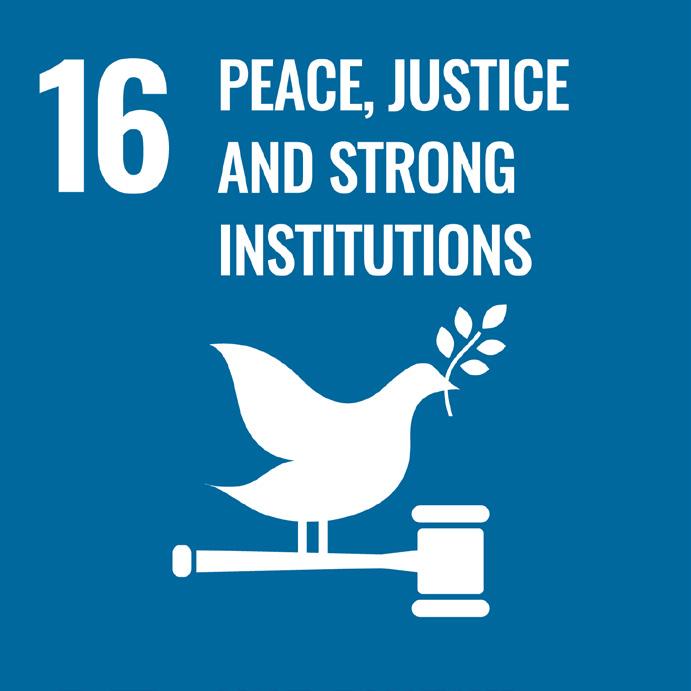
SDG 16: The goal of peace, justice and strong institutions is enforced through YEFL’s engagement with youth as key stakeholders in preventing violent extremism. Additionally, youth are rallied to use their voices for change through the implementation of youth parliament, youth centres and youth network projects.
• We address the dual role of youth as both vulnerable victims and potential perpetrators of conflict by equipping them with skills to drive communityled solutions.
• We prioritize the engagement of marginalized and minority ethnic youth, ensuring their active participation in peacebuilding efforts.
• We mobilize, organize, and empower young people through structured training in PVE, leadership, dialogues that foster meaningful engagements between community and state actors to prevent violence.
• Through our tailor-made Empowerment Bootcamps, YEFL-Ghana enhances youth capacities in advocacy, conflict resolution, trust building, community led initiatives and minority inclusion initiatives, strengthen partnerships between youth, community leaders, and state actors to ensure a coordinated approach to violence prevention is ensured.
By implementing these strategic interventions, YEFL-Ghana fosters a proactive and empowered youth movement, ensuring that communities remain resilient and at peace.
“Youth at peace is a society at peace”!!

In the Upper East region, Fulbes were only allowed to rear cattle but not engage in selling or buying them. Only indigenes engaged in cattle trading which meant Fulbes had little economic opportunities and also could not decide pricing rate for cattle especially if they didn’t own them. Aside this, the Fulbes in the same region paid higher cattle rate than others across the country. They were been made to pay higher and believed it differed per region. Our intervention with their youth group ie FUYAG, served as an opportunity for them to be enlightened on some of these issues and how they can curb it. The youth leveraged on the knowledge gained from our empowerment trainings to engage their paramount chief on these issues. The chief who is well known and renowned, used his influence to engage other stakeholders and this has effected some changes. The youth also embarked on sensitization exercises to educate their people on the mandated payment of cattle rate highlighting the approved amount.
Arts, culture, and sports have immense potential to foster social change, promote inclusion, and empower young people. However, many talented youths in Ghana lack access to training, platforms, and resources to harness their creative potential and contribute meaningfully to their communities.
The absence of structured cultural exchange programs and limited investment in sports development further restricts youth opportunities. YEFL Ghana aims to leverage the power of arts, culture, and sports to inspire creativity, encourage cross-cultural learning, and promote development, especially among marginalized youth.
OBJECTIVE
Inspire and promote. youth creativity and cross-cultural understanding through arts, cultural exchanges, and sports, using these mediums to address societal challenges, promote inclusion, and celebrate diversity.
Arts and Culture is at the core of our existence as a people and society. At YEFL-Ghana we tap into the power of arts to empower young artists and activist to use arts innovatively and creatively to address societal issues of interest and become change makers. Since 2018, YEFL has worked strategically with art as a vehicle for change and has established national and regional artist collaborations and networks to support artists to be actively engaged. The strategy has proven to be very effective in addressing issues and YEFL will continue to explore and expand the Art of Change intervention.
Through our tailormade youth cultural exchange program we promote learning and experience sharing across cultures. The exchanges can be arranged for education institutions, groups and NGOs based on their needs and alignment with YEFL’s mission.
Sports is used as an effective tool for development. We engage the youth in sporting activities, which holds virtues and values such as patience, tolerance, respect for others, equal rights, participation, health, sharing, peace and unity which are necessary ingredients for development. YEFLGhana uses art strategically to address gender inequalities by giving youth tools and platforms to create new perspectives on gender equality.
SDG 3: Organising sporting activities for the youth where they not only stay active but convene in community is how YEFL ensures healthy living and promotes wellbeing in alignment with this goal.
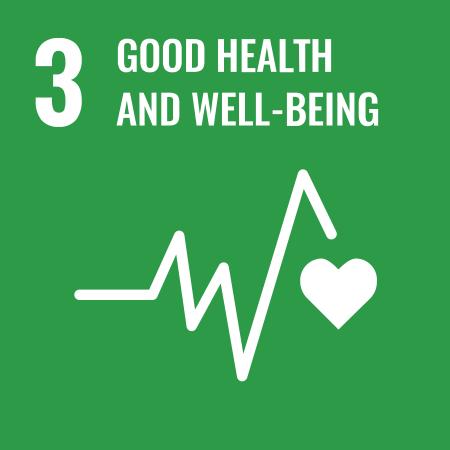
SDG 4: The promotion of cultural education through empowering youth to utilize arts and culture while improving youth participation in governance relates to goal 4 which looks to inclusive and equitable quality education for the vulnerable including persons with disabilities and eliminating gender disparities.
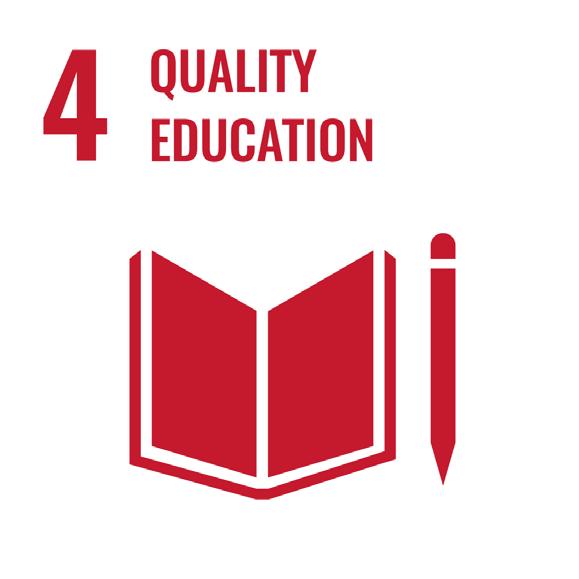
• Build and strengthen networks for young artists and support them to address relevant issues through art.
• Use art strategically to address climate change issues in collaboration with Youth Climate Activists and reporters.
• Build capacity of artists through workshops and link them to relevant national and international networks, institutions and mentors who can support their work.
• Co-create and design tailored youth cultural exchanges between local and international institutions for knowledge sharing and learning across cities and borders.
• Facilitate and collaborate with young volunteers/students from all on variety of initiatives or activities that promotes learning and knowledge sharing
• Support youth sports development as a tool for dialogue and empowerment especially for the marginalized.
• Use sport as a tool for Youth to acquire positives values and virtues such as patience, tolerance, respect for others, equal rights, participation, health, sharing, peace and unity.

Young people volunteer their time and skills to empower children between the ages of 5-18 years through sports. They use soccer, basketball and street dance to mobilize these kids and inculcate in them life and social skills. As role models, the youth who are called Playmakers, identify the interests of these children and plan out sports activities through which they engage, educate and empower them to be change leaders. Through Arts, a young videographer made an awareness video on the use of plastics and its dangers to the society. Aliscopa, as he is popularly known, identified plastic waste as a sustainable development issue and made a visual piece on it. He made a call on his community and fellow youth to wake up and fight against plastic waste as his way of expressing sustainability through arts.
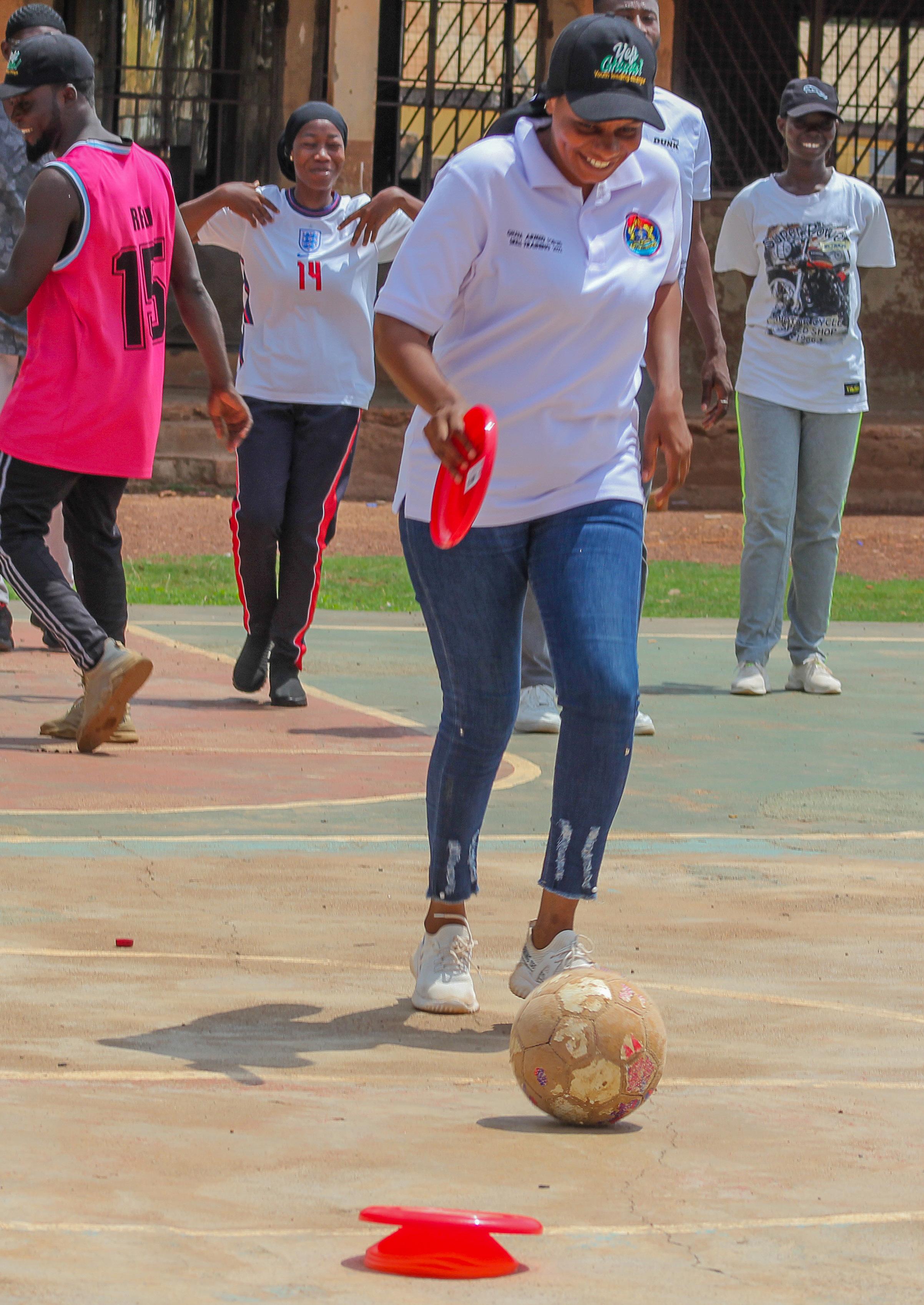
To ensure the effectiveness and adaptability of YEFL-Ghana’s strategic interventions, a structured Monitoring, Evaluation, and Learning (MEL) framework for this strategic plan will be developed and implemented through the following key mechanisms:
YEFL-Ghana will conduct an Annual Review Meeting with staff, youth networks, and partners. These sessions will assess achievements, challenges, and lessons learned over the year. Based on insights gathered, necessary adjustments will be made to enhance strategic implementation.
A comprehensive mid-term evaluation will be carried out in the third year to assess progress toward key outcomes. This assessment will identify gaps, measure the effectiveness of ongoing initiatives, and inform strategic course corrections. Findings will be used to recalibrate interventions, ensuring alignment with evolving needs.
A final impact assessment will be conducted at the end of the five-year strategy cycle. This evaluation will measure overall programmatic impact, document successes, and analyse persistent challenges. Insights from this review will shape recommendations for future strategic planning and program sustainability.
